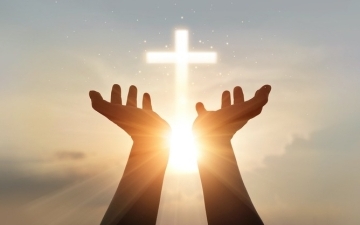How did Moses lead the Israelites out of slavery in Egypt?
The story of Moses leading the Israelites out of slavery in Egypt is one of the most pivotal and dramatic events in the Bible. Found in the book of Exodus, it tells of how God used Moses to deliver His people from oppression, guide them through a miraculous escape, and set the foundation for their covenant relationship with Him. This narrative has deep theological significance, showcasing themes of God’s power, faithfulness, and the journey from bondage to freedom. Let’s explore the key events and meanings behind Moses' leadership and the Israelites' exodus from Egypt.
1. The Israelites’ Bondage in Egypt
The story begins with the Israelites in bondage in Egypt. After the death of Joseph, who had risen to power in Egypt and saved his family from famine, a new Pharaoh came to power who did not remember Joseph. This new Pharaoh feared the growing population of Israelites and enslaved them, forcing them into hard labor to build cities like Pithom and Rameses (Exodus 1:8-14).
The oppression was severe, and the Israelites cried out to God for deliverance. In response to their cries, God raised up a deliverer: Moses, a Hebrew man who had been raised in Pharaoh’s household but later fled Egypt after killing an Egyptian who was beating a Hebrew slave (Exodus 2:11-15).
2. God Calls Moses at the Burning Bush
While living in Midian, Moses encountered God in the burning bush on Mount Horeb (Sinai) (Exodus 3:1-10). God spoke to Moses from the bush, commissioning him to return to Egypt and lead the Israelites out of slavery. God revealed Himself as "I AM WHO I AM" (Yahweh) and assured Moses that He had seen the suffering of His people and intended to deliver them.
Moses was initially reluctant, citing his lack of eloquence and fear of rejection. However, God assured him that He would be with him, and He gave Moses miraculous signs to perform, such as turning his staff into a serpent and making his hand leprous and then healed again (Exodus 4:1-17). With the help of his brother Aaron, who would speak on his behalf, Moses accepted the mission.
3. Confronting Pharaoh: The Ten Plagues
Upon returning to Egypt, Moses and Aaron went before Pharaoh, delivering God’s message: “Let my people go, so that they may worship me” (Exodus 5:1). Pharaoh, however, refused to let the Israelites go, and instead made their labor even more difficult. This set the stage for a dramatic confrontation between God and Pharaoh, marked by the Ten Plagues.
The plagues demonstrated God’s power over Egypt’s deities and nature, progressively intensifying until Pharaoh’s resistance was broken. Here’s a brief overview of the plagues:
- Water Turned to Blood (Exodus 7:14-24)
- Frogs (Exodus 8:1-15)
- Gnats (Exodus 8:16-19)
- Flies (Exodus 8:20-32)
- Livestock Diseased (Exodus 9:1-7)
- Boils (Exodus 9:8-12)
- Hail (Exodus 9:13-35)
- Locusts (Exodus 10:1-20)
- Darkness (Exodus 10:21-29)
- Death of the Firstborn (Exodus 11:1-12:30)
Each plague demonstrated God’s sovereignty, with the final plague—the death of the firstborn—being the most devastating. This last plague led to the institution of the Passover, where the Israelites were instructed to mark their doorposts with the blood of a lamb so that the angel of death would pass over their homes. This act of faith not only saved them from the plague but also became a foundational celebration, commemorating their deliverance.
4. The Exodus: Freedom from Slavery
After the death of the firstborn, Pharaoh finally relented and allowed the Israelites to leave Egypt. The Israelites left in haste, taking their unleavened bread, as they had no time to let it rise. This event marks the beginning of Passover, a feast that the Israelites were to observe throughout their generations as a reminder of their deliverance (Exodus 12:31-42).
The Israelites set out on their journey, guided by a pillar of cloud by day and a pillar of fire by night—signs of God’s presence leading them (Exodus 13:21-22). However, Pharaoh soon regretted letting them go and pursued the Israelites with his army.
5. The Crossing of the Red Sea
As the Israelites found themselves trapped between the Red Sea and Pharaoh’s approaching army, they cried out in fear. But God instructed Moses to stretch out his staff over the sea, and He caused a strong wind to blow, parting the waters and allowing the Israelites to cross on dry ground (Exodus 14:13-22).
When the Egyptians attempted to follow, the waters returned, drowning Pharaoh’s army and bringing a decisive end to the Israelites’ enslavement (Exodus 14:26-31). This miraculous event became a defining moment in Israel’s history, symbolizing God’s power to save and His faithfulness to His promises. The Israelites celebrated with a song of praise, recognizing that God had delivered them from their enemies (Exodus 15:1-21).
6. The Journey to Mount Sinai
After crossing the Red Sea, the Israelites began their journey through the wilderness, heading toward Mount Sinai, where they would receive God’s law and enter into a covenant relationship with Him. Though the journey was difficult and marked by challenges such as lack of water and hunger, God provided for His people through miracles like the manna (bread from heaven) and water from the rock (Exodus 16-17).
At Mount Sinai, God gave Moses the Ten Commandments and other laws, establishing the covenant that would shape the identity of the Israelites as God’s chosen people. This covenant was built on the foundation of the deliverance from Egypt, reminding the Israelites that they were saved by God’s grace and called to live according to His ways.
The Significance of Moses’ Leadership
Moses' leadership in the exodus of the Israelites from Egypt is significant for several reasons:
- God’s Power and Sovereignty: The story reveals God’s supreme power over all creation, as He uses the plagues and miracles to demonstrate His authority over Pharaoh and the gods of Egypt.
- Faith and Obedience: Moses’ journey is marked by moments of faith and obedience, even when the task seemed impossible. His willingness to trust God and follow His instructions serves as an example of faithful leadership.
- God’s Faithfulness to His Promises: The exodus story is a fulfillment of God’s promises to Abraham, Isaac, and Jacob, showing that God is faithful to His covenant people and that He remembers His promises.
- A Call to Freedom and Worship: God’s purpose in delivering the Israelites was not just to free them from physical slavery but to bring them into a relationship where they could worship Him freely. The story emphasizes that true freedom is found in serving God and living according to His will.
What Does the Exodus Mean for Us Today?
The story of Moses and the exodus continues to hold profound meaning for believers today. It serves as a reminder that God hears the cries of the oppressed and is willing to act on behalf of those who seek Him. It also points forward to the spiritual deliverance that is offered through Jesus Christ, who brings us out of the bondage of sin and into the freedom of a new life with God.
The exodus reminds us that God is with us in times of trouble, guiding us through challenges and making a way where there seems to be none. Just as the Israelites faced moments of doubt and fear, we too may find ourselves in situations where the path ahead seems uncertain. But the story of Moses teaches us to trust in God’s provision and to have faith that He will lead us through.
In the end, the exodus is a story of hope, redemption, and the promise of a new beginning—a story that has inspired generations of believers to trust in God’s power to deliver and to guide them through their own journeys of faith.
Contributions from Bible History Online and Ancient History.
Related Posts
Overcoming Doubt: Building a Firm Foundation in Your Christian Journey
Doubt is a natural part of the human experience, and it can often find its way into our spiritual lives. As Christians, we may wrestle with doubts about our faith, God's existence, or the meaning of our journey. However, doubt can also be an opportunity for growth, deepening our faith,...
Read MoreFinding Hope in Times of Crisis: Trusting God’s Plan for Your Life
Life often presents us with unexpected challenges and crises that can leave us feeling overwhelmed, anxious, and uncertain about the future. In such moments, finding hope can be a lifeline that sustains us through the darkest times. For those who place their faith in God, hope is not just wishful...
Read MoreThe Prodigal Son: A Story of Redemption and God’s Unending Love
One of the most beloved parables in the Bible, the story of the Prodigal Son, as told by Jesus in Luke 15:11-32, is a timeless narrative that continues to resonate with people of all backgrounds and beliefs. This parable beautifully illustrates the concepts of redemption, forgiveness, and the boundless love...
Read MoreThe Power of Prayer: How to Strengthen Your Connection with God
Prayer is a bridge that connects the finite with the infinite, the earthly with the divine. It is a profound and essential practice in virtually every religious tradition, serving as a means to seek guidance, offer gratitude, find solace, and deepen one's relationship with a higher power. In the Christian...
Read MoreWhy Advent Is Important for Christians and How to Celebrate It
As the holiday season approaches, many Christians look forward to one of the most meaningful times of the year Advent. This beautiful four-week period before Christmas is more than a countdown of days. Advent is a time of reflection, hope, preparation and joyful anticipation of the birth of Jesus. In...
Read MoreLiving a Christ-Centered Life: Practical Tips for Everyday Faith
In a world filled with distractions and demands, living a Christ-centered life is a profound commitment that requires intentionality and purpose. It means aligning your thoughts, actions, and priorities with the teachings and example of Jesus Christ. While this may seem challenging in the busyness of daily life, it is...
Read MoreExploring the Miracles of Jesus: Lessons of Faith and Compassion
The life and ministry of Jesus Christ are marked by a series of extraordinary events that defy the laws of nature—miracles. These miracles are not merely displays of divine power but profound teachings that offer lessons of faith, compassion, and the boundless love of God. In this article, we embark...
Read MoreUnpacking the Parables: Discovering Hidden Truths in Jesus’ Stories
The parables of Jesus are like treasure chests filled with timeless wisdom and profound truths. These short, simple stories, often drawn from everyday life, have the power to illuminate the deepest mysteries of faith and human existence. They challenge our understanding, provoke thought, and reveal profound insights into the Kingdom...
Read MoreUnderstanding Grace: God’s Unconditional Love and Forgiveness
In the tapestry of Christian theology, few concepts are as profound and transformative as grace. Grace is often described as God's unmerited favor, an undeserved gift that flows from His boundless love and mercy. It's a theme woven throughout the Bible, representing the heart of the Christian faith. In this...
Read MoreWalking by Faith: Navigating Life’s Challenges with Biblical Wisdom
Life is an unpredictable journey, filled with highs and lows, joys and sorrows, and unexpected twists and turns. In the face of life's challenges, people often turn to their faith for guidance and strength. For Christians, the Bible serves as a timeless source of wisdom and inspiration. It offers invaluable...
Read MoreThe Role of Scripture in Spiritual Growth: A Guide to Bible Study
Scripture, in its essence, is more than ink on pages or words in a book. It is a living, breathing testament to the wisdom, guidance, and divine revelation that have shaped the lives of countless believers throughout history. For Christians, the Bible is a cornerstone of faith and a vital...
Read More















